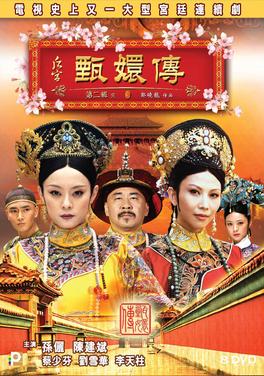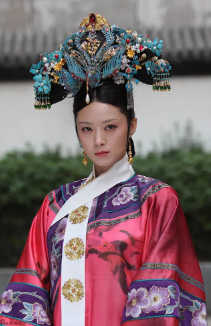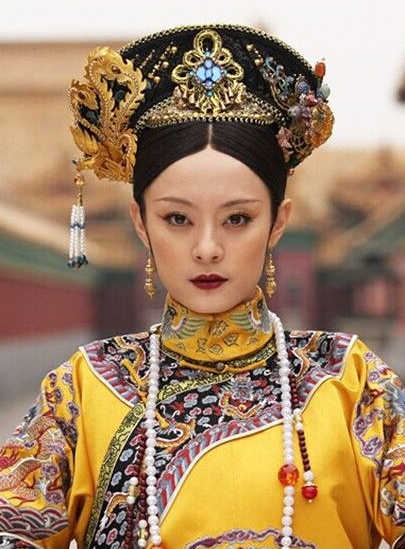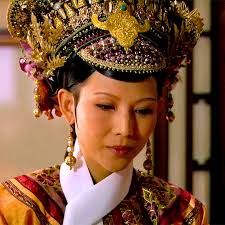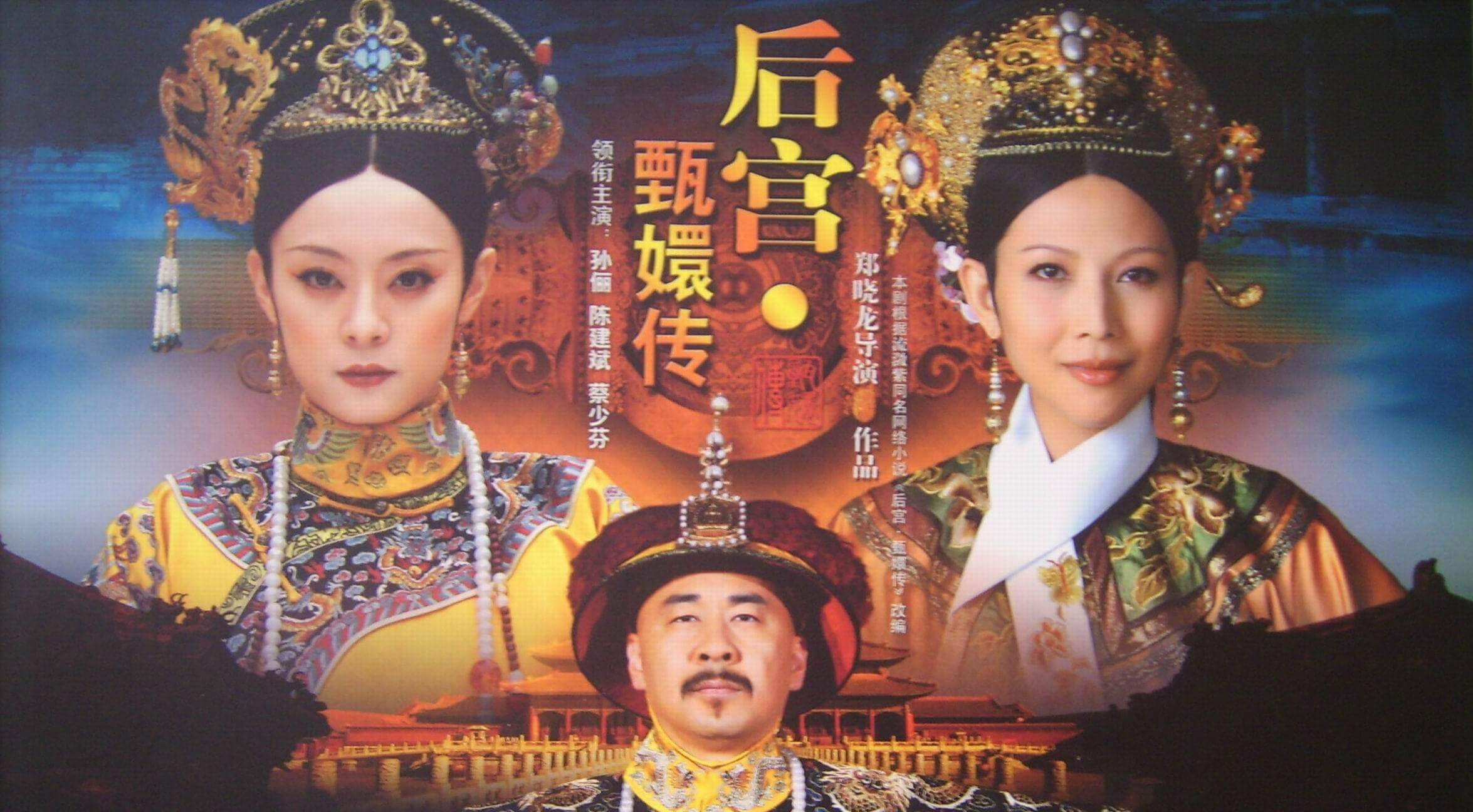
While Zhen Huan is a leader who grows up in adversity, Consort Hua is a commander crushed by her own crown, born into privilege but failing early.
There are people like Consort Hua who, despite having the best cards, exit the game the earliest. The world's injustices, insecurities, inequalities, and difficulties are irrelevant to them, and some are so absurdly protected that they utter "Why not eat minced meat?" Most are not so extreme, but it cultivates a personality like Consort Hua's.
This privileged environment acts like a thick fog, blinding Consort Hua from seeing the real world, hearing genuine voices, or touching real hearts. She fires arrows in all directions, seeing everyone as either pawns or enemies, not realizing these people have already woven a net around her, making her escape impossible. She has essentially ensnared herself, leading to complete defeat.
Consort Hua's personality has a "show-off" element. She engages in social interactions with an air of superiority, becoming the least welcomed person in social circles.
This might be because people enjoy showing off themselves but dislike others doing so. Those who love to show off often have a mindset of flaunting, emitting signals of arrogance that others easily detect. Extreme individuals may even despise those who cannot show off.
Consort Hua's show-offs are mostly directed at the Empress.
From the start, Songzhi deliberately knocked over the snacks the Empress sent to Consort Hua.






Songzhi likely knocked over the peony rolls due to years of tacit understanding with Consort Hua. Consort Hua dislikes things given by the Empress, and the Empress has already explained why. It seems Consort Hua has long been tired of such things. What the Empress has, Consort Hua has too, and often better. Consort Hua looks down on the Empress's gifts.
Disdain is one thing, but deliberately knocking them over shows an intent to put the Empress in her place, signaling that she does not appreciate her gesture. It's meant to show her own grandeur.
But why does Consort Hua do this?
Next, there’s the scene where all the concubines pay respects to the Empress. In this scene, Consort Hua arrives late and then mocks the Empress's arrangements.














Consort Hua arrives late, and the Empress insists on waiting for her. This shows that the Empress is principled and stands firm by her principles, establishing her authority among the concubines. Though Consort Hua appears strong in front of her, the Empress is not weak either.
In this scene, Consort Hua mocks the tea the Empress provides, stating that the tea used by the Empress for the concubines is the same tea she gives to her maid, Songzhi.
Later, Consort Hua mentions renovating the Empress's Jingren Palace and contrasts it with her own luxurious Yikun Palace. These remarks are lightly brushed aside by the Empress, leaving Consort Hua seething with anger.
Consort Hua's actions in front of the Empress are not just showing off but have an element of provocation. In her eyes and in reality, the Empress's standard of living does not match her own.
However, some people do not like luxury, considering it neither a merit nor a source of joy. The Empress appears to be one of those people.
Mocking someone for being frugal and humble can be infuriating, and Consort Hua seems to understand this well. But what does she ultimately hope to achieve?
Next, when new concubines enter the palace, Consort Hua once again arrives late and displays a grand entrance.

















Consort Hua receives gifts from the Emperor daily, boasting of his exclusive favor for her. The Empress, though not responding directly, must feel deeply troubled.
When Consort Hua's show-offs, provocations, and attacks on the Empress achieve no response, her arrogance begins to subside.
Next, we analyze Consort Hua's actions when Zhen Huan is promoted to a higher rank.


Consort Hua, upon hearing Zhen Huan's title "Huan," immediately mocks her for having the same character as her own "Hua." She continuously attacks Zhen Huan on various issues, displaying her arrogance and showing off her seniority. She deliberately forces Zhen Huan to drink the "sleeping tea."
At the Empress's birthday banquet, Consort Hua's show-off elements resurface. She deliberately avoids sitting next to the Empress, indicating her disdain. She specifically chooses Zhen Huan, someone she looks down upon, and orders her to perform a dance.
Although Zhen Huan eventually gains favor, Consort Hua initially treats her with extreme arrogance and oppression.
Consort Hua's intent is to suppress, causing harm. This is not just showing off; it's arrogance.
Zhen Huan's talented dance draws the Emperor's attention. Though Consort Hua doesn't show it on her face, her anger is evident. As Zhen Huan gains favor, Consort Hua treats her with coldness and oppression.
Zhen Huan, who is deeply favored by the Emperor, gains the Empress's support and her own following among the palace's concubines. When Zhen Huan is pregnant, Consort Hua makes multiple attempts on her life.
In this section, Zhen Huan is filled with hatred towards Consort Hua. She often hides behind Zhen Huan and pretends to be a pitiful victim, while in truth, she is more ruthless.
It's essential to discuss the differences between Zhen Huan and Consort Hua.
Consort Hua:
Comes from a powerful family, the niece of the Empress Dowager, backed by her brother, Nian Gengyao.
Fierce personality with cruelty.
Extremely conceited and arrogant, often acting domineeringly, looking down on the Empress, and becoming jealous of newcomers who gain favor.
Uses favoritism and oppression, especially towards those gaining the Emperor's favor, and repeatedly attempts to harm Zhen Huan.
Zhen Huan:
Highly intelligent, quick-witted, and skilled in political maneuvering.
Capable of transforming enemies into allies and turning disadvantages into advantages.
Can skillfully navigate the palace's complex power dynamics.
A kind heart, willing to protect loved ones and show mercy to enemies.
Steadfast perseverance and calmness in facing adversity, often enduring humiliation for survival and development.
Comparing their approaches, Consort Hua's aggressive and domineering style often isolates herself, causing her to become surrounded and defenseless. In contrast, Zhen Huan's patience, wisdom, and diplomacy enable her to turn crises into opportunities.
Though both women represent different survival philosophies within the palace, their fates starkly differ, highlighting the critical importance of humility and resourcefulness in a power-struggled environment.
In conclusion, evaluating Consort Hua from "Empresses in the Palace," her character is deeply complex, embodying the blend of strength and fragility, wisdom and folly. Her interactions and conflicts with other characters, especially Zhen Huan, reveal the intricacies of palace life, portraying a powerful story of ambition, rivalry, and survival.
